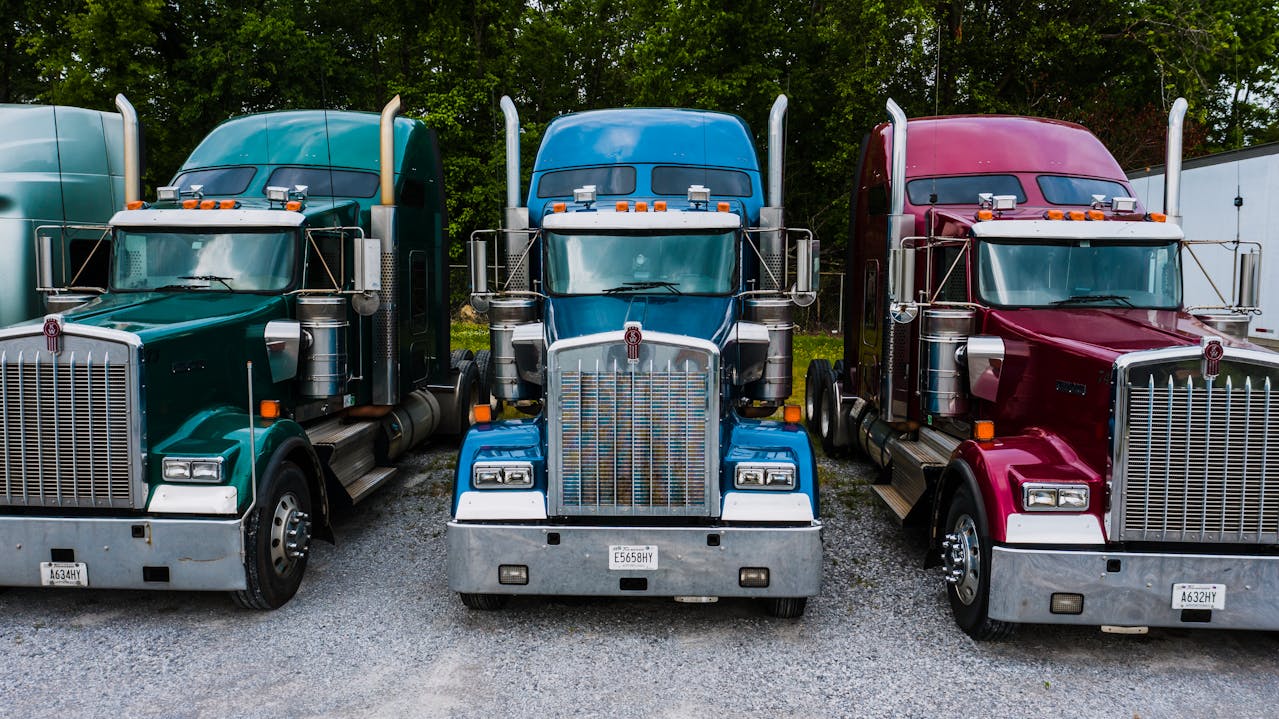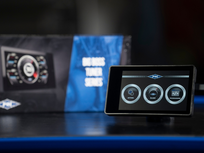Brakes are a crucial component of any vehicle, especially for semi-trucks that handle heavy loads and long hauls. With the immense weight and extended travel distances common in semi-truck operations, reliable brakes are paramount for ensuring safety on the road and preventing accidents.
If you’re a semi-truck driver, you understand the importance of reliable brakes. Whether you’re hauling freight across the country or navigating busy city streets, having brakes that perform optimally is crucial for your safety and the safety of others on the road.
When it comes to truck braking systems, two primary types stand out: drum brakes and disc brakes. In this comprehensive guide, we’ll explore the differences between drum brakes and disc brakes, their advantages and disadvantages, and which type of brakes might be best for your semi-truck.
What Are Brakes?
Brakes are critical to the safety and operational efficiency of any vehicle. A well-functioning brake system ensures that drivers can control and halt their vehicles effectively under various conditions, which is crucial in preventing accidents and ensuring the safety of cargo and personnel.
When the brake pedal is engaged, the vehicle’s hydraulic system (pneumatic for more heavy-duty units) applies pressure. This pressure activates the brake mechanism, which uses calipers (in disc brakes) or shoes (in drum brakes) to apply friction to the rotors or drums attached to the wheels. This friction converts the moving vehicle’s kinetic energy into thermal energy, effectively slowing down or stopping the vehicle.
What are Drum Brakes?
Drum brakes are a traditional type of braking system that has been used in vehicles for many years. They consist of a circular drum attached to the wheel, brake shoes, and a wheel cylinder. When the brake pedal is pressed, hydraulic pressure forces the brake shoes against the inner surface of the rotating drum, generating friction and slowing down the wheel.
Advantages of Drum Brakes
- Durability: Drum brakes have a larger friction contact area, resulting in longer-lasting performance.
- Low Cost: They are generally cheaper to manufacture than disc brakes, making them a cost-effective option for many vehicles.
- Low Input Force: Some drum brakes require minimal input force to activate, reducing the effort needed on the brake pedal.
- Low Maintenance: Drum brakes are housed within a protective drum, offering better corrosion resistance and relatively easy maintenance.
Disadvantages of Drum Brakes
- Overheat: Drum brakes tend to overheat in high braking conditions, leading to decreased effectiveness and potential glazing of brake shoes.
- Brake Pedal Travel: The drum’s thermal expansion during hard braking may require the driver to press the brake pedal farther for effective braking.
- Grabbing: Wet or rusted brake shoes can cause grabbing, leading to unpredictable braking behavior and potential loss of control.
- Complex Construction: Drum brakes consist of multiple components, requiring skilled mechanics for repairs and maintenance.
What Are Disc Brakes?
Disc brakes are a more modern vehicle braking system that is also commonly found in newer models of semi-trucks. They comprise a disc-shaped rotor, brake pads, and a caliper. When the brake pedal is pressed, hydraulic pressure activates the caliper, squeezing the brake pads against the rotor, creating friction and slowing down the wheel.
Advantages of Disc Brakes
- Less Effort: Disc brakes require less effort to engage, providing greater braking force with minimal pedal pressure.
- Heat Dissipation: The larger surface area of disc brakes allows for efficient heat dissipation, reducing the risk of overheating and maintaining braking performance.
- Consistent Performance: Disc brakes perform well in various weather conditions, offering reliable braking even in wet conditions.
- Easy Installation: Disc brakes have fewer components and are easier to install and maintain than drum brakes.
Disadvantages of Disc Brakes
- Cost: Disc brakes are generally more expensive to manufacture and replace than drum brakes, increasing initial and maintenance costs.
- Rotor Warping: High-speed braking or improper installation can lead to rotor warping, affecting braking performance and requiring replacement.
- Brake Pad Wear: Due to the intense squeezing motion, brake pads in disc brakes tend to wear out faster, requiring more frequent replacement.
- Parking Brake Effectiveness: Disc brakes may be less effective as parking brakes, especially in cold conditions, necessitating additional measures for parking stability.
What Brakes Are Best for Semi-Trucks?
When it comes to choosing between drum brakes and disc brakes for semi-trucks, several factors come into play, including the following:
- Performance: Disc brakes generally offer superior performance, providing better stopping power and heat dissipation than drum brakes.
- Durability: Drum brakes are known for their durability. Their increased friction contact area contributes to their longer lifespan, especially in rear-wheel applications.
- Cost: Drum brakes are typically more cost-effective than disc brakes, making them an attractive option for those on a tight budget.
- Maintenance: Disc brakes are easier to inspect and maintain due to their simpler design and open construction, while drum brakes can be more complex and require specialized knowledge for servicing.
- Driving Conditions: Consider the typical routes and driving conditions your semi-truck will encounter. Disc brakes might be preferable for mountainous terrain or stop-and-go traffic, while drum brakes could be sufficient for long-distance hauls with fewer stops.
- Load Types: The type and weight of your semi-truck’s loads can impact brake performance. Heavier loads may require the superior stopping power of disc brakes to ensure safety.
- Regulatory Compliance: Check local regulations and industry standards regarding brake types and specifications to ensure compliance with safety requirements.
- Driver Preference: Some drivers may have personal preferences based on their experience and comfort with either drum brakes or disc brakes.
Keep Your Fleet Running Smoothly with Big Shop Diesel
Choosing the right brakes, whether drum or disc, can significantly affect your semi-truck's performance and reliability. With the complexities of modern braking systems, making the right choice is imperative for the safety of your drivers and the longevity of your fleet. Proper maintenance and timely replacements of braking systems are essential to keeping your truck in optimal condition and ensuring it remains safe on the road.
At Big Shop Diesel Services, we bridge the gap between in-house and dealer maintenance, offering smarter, more efficient solutions tailored to meet your fleet’s unique needs. Whether you’re an owner-operator or manage a large fleet, our experts are equipped to handle all aspects of brake maintenance and repair in the heart of Dallas-Fort Worth.



